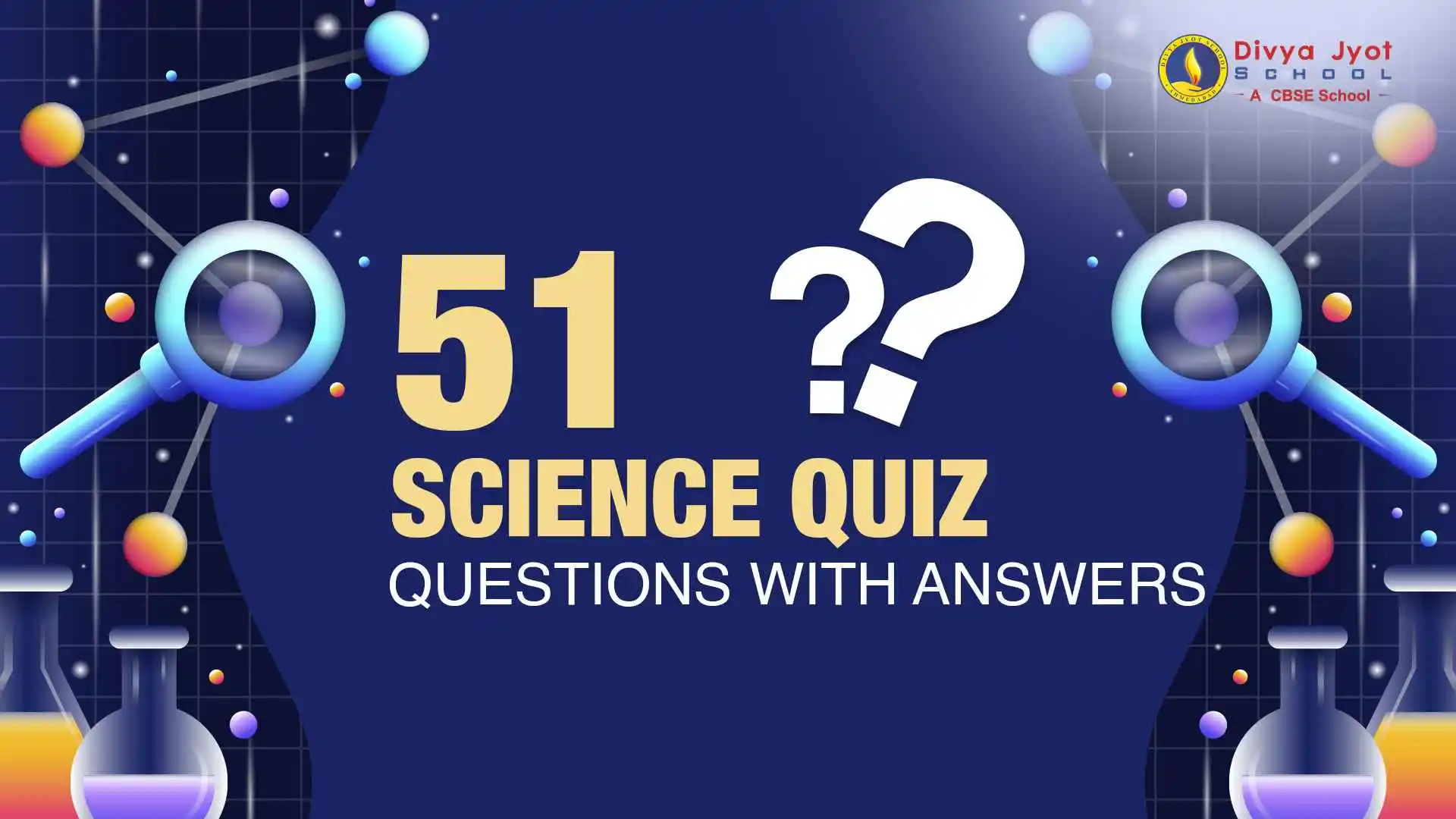Ever had that “Aha!” when a complicated science concept finally sinks in? Science quizzes are the superpower in the generation of such moments. They are not merely a matter of memorizing facts, but an active, involving means by which you can not only test the brain but also help to strengthen learning and find out what made the world what it is and why.
As a student who has an exam, a teacher who wants to create a classroom activity, or a simple lifelong learner who has a curious mind, there is no better method of learning and retaining information than playing a game.
We are now going to make a plunge into a journey between the infinitely small world of atoms and the big one of the cosmos. These are questions about science in a quiz that can earn you a pleasurable and fruitful brain exercise.
Why Science Quizzes Are a Secret Weapon for Your Brain
Quit reading that science is laboratory work and books. Think again. The laws of physics are the reason your smartphone GPS listens to you, chemistry is in place when you bake a cake, and the laws of biology determine the beat of your heart.
A good understanding of the knowledge in the field of science is no longer a niche skill- it is a tool that is necessary to navigate and appreciate the contemporary world.
However, how do you read and passively to really understand? This is where a good science quiz can come in.
The Learning Engine: More Than Just Memorization
Quizzes aren’t just tests; they’re active learning machines. Here’s how they supercharge your brain:
- Boost Memory: Passive review is only effective to a small degree when compared to active information recall, which reinforces neural pathways in a significantly better way.
- Fuel Curiosity: The mistakenness of a question results in creating a knowledge gap, which causes the actual interest in seeking the answer.
- Identify Gaps: They provide instant feedback, highlighting what you know and what you need to review.
Who Benefits? (Spoiler: Almost Everyone)
- To Students: A good preparation aid creates confidence in exams and retains the main ideas.
- To Educators: An active method of measuring comprehension and engaging in the lesson.
51 Science Quiz Questions With Answers
General Science Quiz Questions (Easy Level)
- Which planet in our solar system has the nickname “the Red Planet”?
- Mars – The surface of Mars has iron oxide that makes it appear reddish in nature
- How many bones does the average adult human have?
- 206 – There are approximately 300 bones fused in babies when they are born.
- What is the chemical symbol for gold?
- Au – This is a Latin word of the word “aurum,” meaning “shining dawn.”
- What gas do plants absorb during photosynthesis?
- Carbon dioxide – Plants combine CO₂ and water to produce glucose with the use of sunlight.
- What is the hardest material found in nature?
- Diamond – This is a substance that consists of carbon atoms organized into a crystal structure.
- Which organ pumps blood throughout the body?
- Heart – This is a muscular organ that beats approximately 100,000 times in a day.
- What are the three states of matter?
- Solid, liquid, and gas – Water exhibits all three forms in the form of ice, water, and steam.
- What is it that holds us down on planet Earth?
- Gravity – This is the way in which objects are drawn towards the center of the Earth.
- What is the most common name of H₂O?
- Water – It is crucial to all known life on Earth and occupies approximately 71 percent of the planet.
- Which planet is closest to the Sun?
- Mercury – It is the smallest planet in our solar system and takes 88 days to complete a circle.
- What is the biggest organ found in the human body?
- Skin – Providing protection, temperature regulation, and sensation.
- What kind of animal of a Komodo dragon?
- Reptile – This is the largest lizard in the world, found in Indonesia.
Physics Quiz Questions With Answers
- Who formulated the laws of motion and universal gravitation?
- Isaac Newton – His 17th-century research provided the basis of classical mechanics.
- What unit measures electrical resistance?
- Ohm – Named after This unit is named after physicist Georg Simon Ohm.
- What type of energy is stored in a compressed spring?
- Potential energy – Are about to be discharged as kinetic energy.
- Can you state the precise speed of light in a vacuum?
- 299,792,458 m/s – Einsteinian universal speed limit.
- Which principle does it apply to when we explain the floating of ships?
- Archimedes’ principle – The force of displacement of fluid in the buoyancy is equal to the force of weight displacement.
- What do we call the change in sound frequency from a moving source?
- Doppler effect – Why sirens sound different as they pass by.
- What are the three primary methods by which heat moves?
- Conduction, convection, and radiation – How thermal energy moves between objects.
- What instrument measures atmospheric pressure?
- Barometer – Essential to forecast the weather and determine the altitude.
- What type of lens corrects nearsightedness?
- Concave lens – Scatters the rays of light in front of the eye.
- What law states that energy cannot be created or destroyed?
- First Law of Thermodynamics – Conservation of energy.
- What is the SI unit of force?
- Newton – An acceleration of 1kg of mass would accelerate 1m/s².
- What particles flow through an electric current?
- Electrons – Moving from negative to positive terminals.
Biology Quiz Questions With Answers
- Which organ purifies our blood?
- Kidneys – These bean-like glands remove rubbish of approximately 150 liters of blood per day.
- What is the powerhouse of the cell?
- Mitochondria – These organelles convert nutrients into energy (ATP) through cellular respiration.
- What process do plants use to make food?
- Photosynthesis – The process that utilizes sunlight to convert carbon dioxide, water, and light into glucose and oxygen.
- How many chambers does the human heart have?
- Four – Two upper (atria) and two lower (ventricles), which contract together to push blood.
- What is the body’s first line of defense against pathogens?
- Skin – This is the physical barrier that ensures few microorganisms enter into the body.
- Which system produces hormones?
- Endocrine system – The glands include the pituitary, the thyroid, and the adrenal glands.
- What do we call the basic unit of heredity?
- Gene – Parts of DNA containing codes of certain traits and proteins.
- What type of blood cells fight infection?
- White blood cells (leukocytes) – This is also a part of the immune system defense against pathogens.
- Where does most nutrient absorption occur?
- Small intestine – It has its villi and microvilli that enlarge surface area to a great extent in order to be absorbed.
- What gas do humans primarily exhale?
- Carbon dioxide – This is a byproduct of the cellular metabolism.
- What is the study of plants called?
- Botany – This scientific discipline deals with the examination of plant life which includes algae to giant sequoia.
- Which part of the brain controls balance and coordination?
- Cerebellum – This is situated at the back of the brain underneath the cerebrum.
Chemistry Quiz Questions With Answers
- What is the chemical symbol for Sodium?
- Na – From the Latin “natrium,” used in table salt and vital for nerve function.
- What is the most abundant gas in Earth’s atmosphere?
- Nitrogen – Approximately 78 percent of the air that we inhale.
- What do we call a reaction that absorbs heat?
- Endothermic – Like photosynthesis or melting ice.
- What pH value indicates a neutral substance?
- 7 – Pure water is the classic example at pH 7.
- How many elements are in the periodic table?
- 118 – 94 are naturally occurring, and 24 are man-made in laboratories.
- What is the lightest element?
- Hydrogen – This element, number 1, is necessary in stars and water.
- What process turns liquid into gas?
- Evaporation – Happens when the molecules acquire sufficient energy to leave the air.
- What is the main metal in steel?
- Iron – This powerful, highly adaptable alloy, which is produced through a combination of carbon and iron.
- What do we call substances that speed up reactions?
- Catalysts – They do not consume; they merely reduce the activation energy.
- Which element do all organic compounds contain?
- Carbon – Forms the backbone of life’s molecules.
- What is the basic unit of a chemical element?
- Atom – This is an assembly of protons, neutrons, and electrons.
- What type of bond shares electrons between atoms?
- Covalent bond – As in water molecules (H₂O).
Earth & Space Science Questions With Answers
- What is the closest star to the Earth?
- The Sun – It is placed at a distance of 93 million miles and is the powerhouse of our solar system.
- What causes the seasons on Earth?
- Earth’s axial tilt – The 23.5-degree tilt varies the hemisphere that gains greater direct sunlight across the year.
- What is the hardest mineral found on Earth?
- Diamond – It is formed through the pressure of carbon deep into the Earth.
Bonus: Mixed Level Challenge (Test Your Knowledge!)
- What quantum particle is known for its uncertainty in position and momentum?
- Electron – It is described by the Uncertainty Principle of Heisenberg.
- In genetics, what do we call having different alleles for a single trait?
- Heterozygous – Relates to the possession of a blue and a brown eye gene.
- What rare atmospheric phenomenon appears as a glowing electric blue cloud?
- Noctilucent cloud – It is a cloud that forms in the mesosphere, which is 50 miles in height.
- Which element expands when frozen and is liquid at room temperature?
- Gallium – Melts at 85.6°F (29.8°C).
- What neurological process explains why we stop noticing a persistent odor?
- Olfactory adaptation – The sensory cells desensitize with age.
- In optics, what unusual material has a negative refractive index?
- Metamaterials – Have the ability to bend light backward.
- Which organ can completely regenerate from just 25% of its original tissue?
- Liver – Unique capability found in one organ of a human being.
- What celestial object has a rotation period of exactly 2/3 its orbital period?
- Mercury – It takes 3 months to complete every two rotations around the Sun.
- How long does it take Earth to orbit the Sun?
- 365.25 days – It is this additional quarter day that causes the leap years.
Conclusion
Whether you toiled and passed this quiz or realized some startling knowledge loopholes, you are embarking on a magnificent journey due to the discoveries in science.
Since the processes of why ships arise and how our liver works are known, every question was an opportunity to view the world from a scientific perspective.
The actual worth of these science quiz questions transcends the final scores – it is all about forming an alternative. fifth, or the moment when complicated things become easy to understand.
Quizzing as a learning technique helps to boost the memory circuits and also quenches our intrinsic desire to find out how the world functions.
FAQs
Q: What are the best science quiz questions?
A: The best science quiz questions balance education and engagement. They should:
- Cover diverse topics (physics, biology, chemistry, earth science)
- Include real-world applications
- Range from basic to challenging
- Provide clear explanations for answers
Our quiz above follows this exact formula!
Q: How can I make a science quiz interesting?
A: Transform dry facts into engaging learning with these tips:
- Add visual elements and diagrams
- Include surprising “did you know” facts
- Use relatable, real-life examples
- Mix question formats (multiple choice, true/false, open-ended)
- Create themed rounds (space, inventions, famous scientists)
Q: Which is the hardest science question ever?
A: A challenging question is, of course, subjective, but some of them are explicitly painfully difficult:
- What do we know of dark matter?
- How then did life start off non-living?
- “What is the mechanism behind quantum entanglement?”
These remain active areas of scientific research!
Q: What are simple science quiz questions for kids?
A: Perfect kids’ science questions should be visual and fun:
- “Why is the sky blue?”
- “How do plants drink water?”
- “What makes a rainbow appear?”
- “Why do stars twinkle at night?”
Focus on observable phenomena they encounter daily.
Q: How to prepare for a science quiz competition?
A: Winning strategies for science quiz competitions include:
- Make flashcards on the terms and concepts.
- Drills of previous quizzes and examinations.
- Make study groups to explain the concepts with others.
- Emphasis is placed on understanding as opposed to memorization.
- Stay updated on recent scientific discoveries




